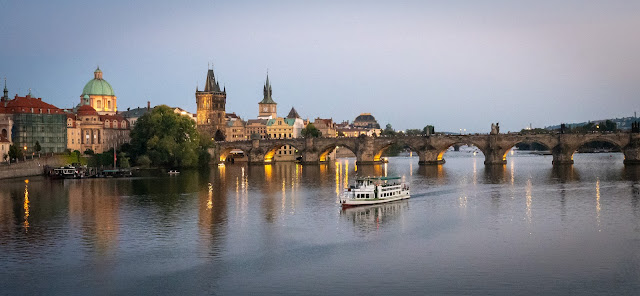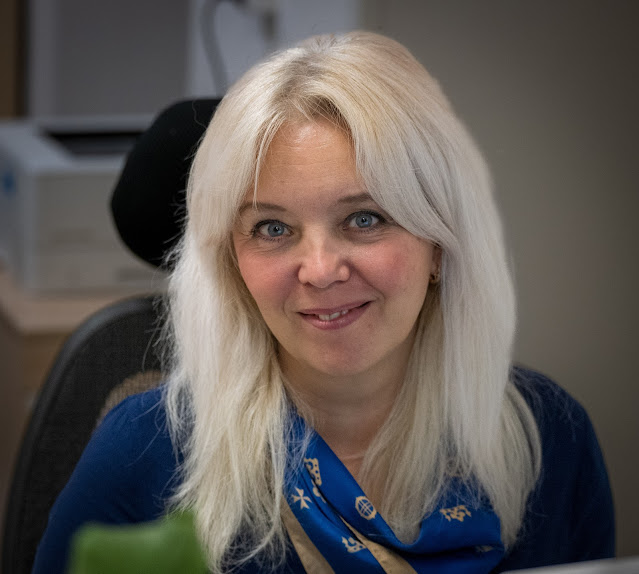On August 30th, we flew to Prague via Dubai on a giant Airbus A380 jumbo, as part of a trip to see Prague, Vienna and Budapest, followed by a visit to friends in St Tropez.
Historical overview from our preparation blog.
Short summary of history of Czech Republic (1918 - 2019).
Airbus A380 in Dubai
Restaurant near our AirBnB in the Malá Strana area.
Plenty statues. Statues seem to belong to one of two categories: suffering pious saints or naked women.
Prague Old Car for tourists
Czech wood-carvings
Plenty tourists. A group pouring off the famous Charles Bridge.
A city of spires
Czechia was the site of many religious conflicts. The part of it around Prague is known as Bohemia, where opposition to the Catholic Church first emerged with the followers of Jan Hus (1370 – 1415).
Jan Hus memorial
The Holy Roman Empire, and the Habsburg Empire attempted to suppress the Hussites. The statues on the Charles Bridge can be understood as political symbols celebrating Catholic saints, and asserting Catholic supremacy.
Three chained Christians, captives of the Turks in the Crusades, are praying for salvation.
Statue on Charles Bridge
Charles the Fourth (1316 – 1378)
View from our AirBnB window
Dimitri, our tour guide and history teacher.
The Vltava River
One arch of the Charles Bridge
Church of Our Lady before Tyn
Prague Castle & St Vitus Cathedral
There are eight statues around the clock; here are some close-ups.
Vanity & Greed Death & Lust
Philosopher & Archangel Michael Astronomer & Chronicler
Tram in Malá Strana
Friendly locals
Friendly drunk Polish tourists
Stodgy food
Warm weather
Changing of the guard at Prague Castle
St Vitus cathedral, part of the Prague Castle complex
St Vitus nave
Stained glass window
A relaxing drink beside the Vltava River
Bread shop
Cream buns
Petrin Tower
A house sign. Some houses have these from a time before many people could read numbers.
Steak flambé at U Modré kachničky restaurant
Thoughts about Prague
Five nights. Plenty, but not nearly enough. Enough to see some of the major tourist hotspots, but it would take years to get into the soul of this fascinating and creative culture. We in Australia joke about an archaic line in our national anthem 'Girt by sea'. But the idea behind it is profound, the more obviously so when one visits countries whose boundaries have shifted many times, and also been penetrated by more powerful neighbours like the Holy Roman Empire, the Habsburg Empire, the Nazis and the Communists.
The Prague Spring in 1968 was a time of hope disappointed by the Warsaw Pact invasion. The Velvet Revolution of 1989 was a sort of miracle.
I came across this passage written by one of the participants in that revolution.
‘The first few years after the revolution were simply one big party. But there was a lot at stake. It was necessary to prove to the world and to ourselves that we were not some remote Soviet guberniya, but a nation securely anchored in the spirit of Charter 77 and in its recent democratic tradition, capable of immediately ridding itself of party bosses and secret police officers, of leaving the Warsaw Pact or abolishing it outright, of sending off the Soviet army, of identifying and where possible rectifying the crimes of the past, of coming to terms with Stalinism and the executions and concentration camps of the fifties, of transforming capital, again making friends with the Germans and the rest of the world, no longer harassing the Gypsies/Roma, breaking peacefully with the Slovaks (since that’s what they wanted), massively investing in culture and science, showering and smiling every day, letting our agriculture blossom and also our healthcare system, industry and small trades, of fostering social life and local clubs, including musical ensembles, amateur theatre and beautification societies, of shrinking the nation’s obesity to a minimum, of learning English, never ever again oppressing women, living environmentally, joining NATO and the European Union, and so on.”Jáchym Topol, With a Passion for Freedom, 2014
Heady stuff!
Some interesting people came from, or were associated, with Prague. Here are a few.
- Antonín Dvořák (1841–1904) — composer; lived most of his life in Prague
- Václav Havel (1936–2011) — dramatist, writer and politician; President of Czechoslovakia and Czech republic (its first; 1993–2003); born and lived in Prague
- Franz Kafka (1883–1924) — German-language fiction writer; born and lived in Prague
- Wolfgang Amadeus Mozart (1756–1791) — composer; some of his best opera successes were during his time in Prague
- Rainer Maria Rilke (1875–1926) — German-language poet; born and studied in Prague
- Franz Werfel (1890–1945) — German-language writer; born and lived in Prague. Married Alma Mahler.
- Tycho Brahe (1546–1601) — astronomer; spent end of life near Prague
- Albert Einstein (1879–1955) — physicist, served as professor at the German part of the Charles University in Prague (1911–1912)
- Nikola Tesla (1856–1943) — inventor, electrical engineer, mechanical engineer, and futurist, studied at Charles University in Prague (1880)
- Johannes Kepler (1571–1630) — astronomer; in 1601, he succeeded Tycho Brahe as imperial mathematician and the next eleven years lectured for several years in Prague and published his paper on Doppler effect there.
- Martina Navratilova (born 1956), tennis player; 18 times Grand Slam champion, born in Prague.
- Tom Stoppard. Playwright.



















































No comments:
Post a Comment